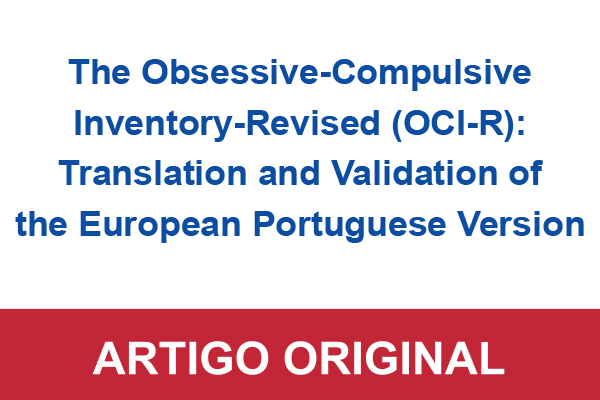SOCIAL MEDIA
Portuguese Medical Association's Scientific Journal

Introduction: The Obsessive-Compulsive Inventory-Revised has been developed to evaluate the severity of obsessive-compulsive symptoms in both clinical and non-clinical individuals. The aim of this study was to evaluate the psychometric properties of the Portuguese version.
Material and Methods: This questionnaire was applied to 90 people with obsessive-compulsive disorder and 246 without a known mental illness. In addition to this clinical evaluation instrument, participants completed other clinical assessment scales that helped characterize the two study groups.
Results: Given the objective of this study, to evaluate the structure by six factors, a confirmatory factor analysis was performed [patient group: χ2(120, n = 90) = 205.779, p < 0.01; CFI = 0.916; GFI = 0.814; RMSEA = 0.0890. Control group: χ2(120, n = 246) = 224.762, p < 0.01; CFI = 0.938; GFI = 0.904; RMSEA = 0.060]. To assess the internal consistency of the scale, Cronbach’s alpha was determined (patient group: α = 0.913; control group: α = 0.888). Convergent validity was tested by determining the Spearman correlation between the scores obtained in the Obsessive-Compulsive Inventory-Revised and Y-BOCS in the patient group (r = 0.651; p < 0.01).
Conclusion: Obsessive-Compulsive Inventory-Revised has proved to be a consistent, valid, and reliable instrument with good psychometric properties to determine the severity of obsessive-compulsive symptoms in the Portuguese population.